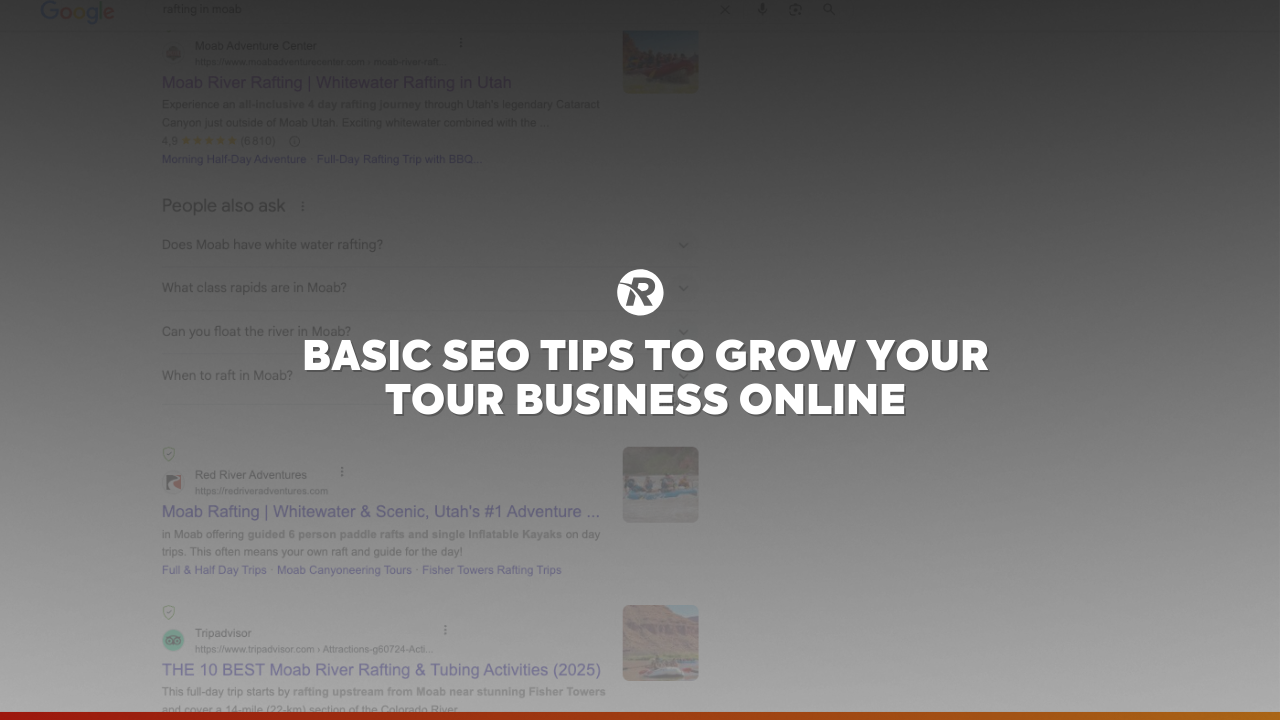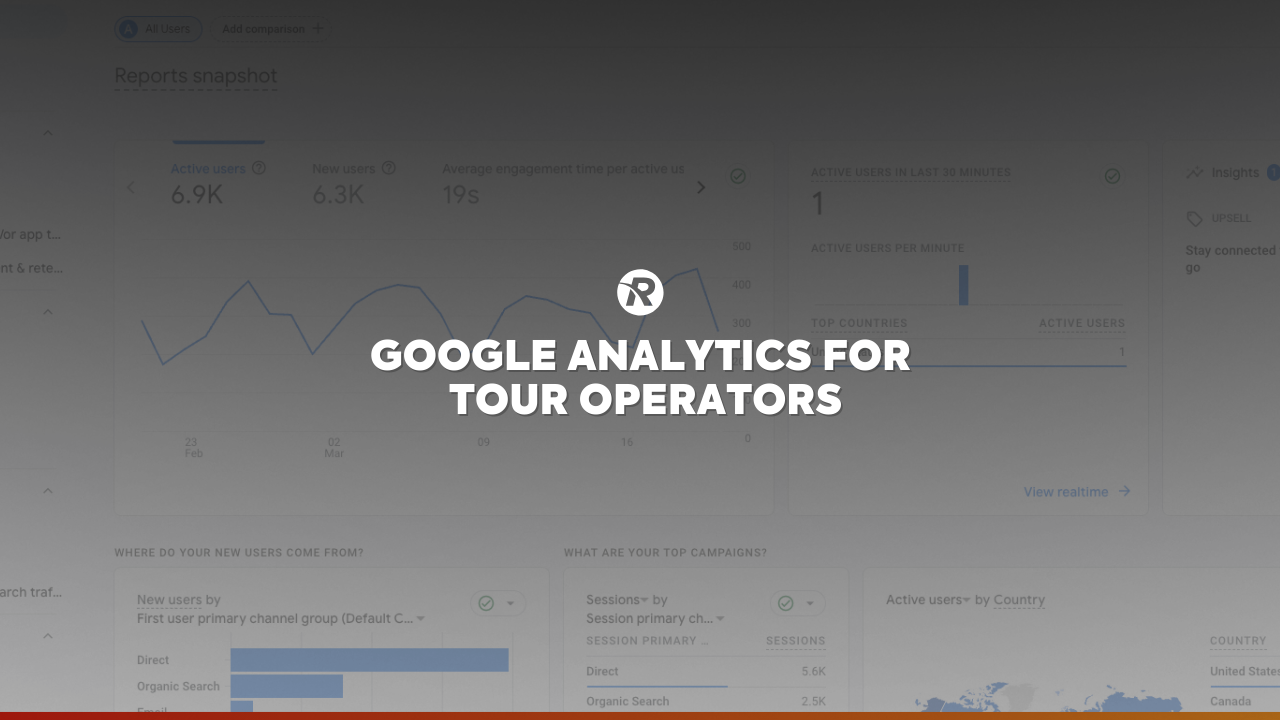Beginners Guide to Local SEO for Tour Operators
Travelers often rely on online searches to plan their adventures, making it crucial for tour operators to have a strong online presence. Local SEO plays a huge role in this, as it helps your business appear in local search results, making it easier for potential customers to find and choose your tours.
In this blog post, we’ll explore why local SEO is essential for tour operators and share nine actionable tips to optimize your online presence and attract more local customers.
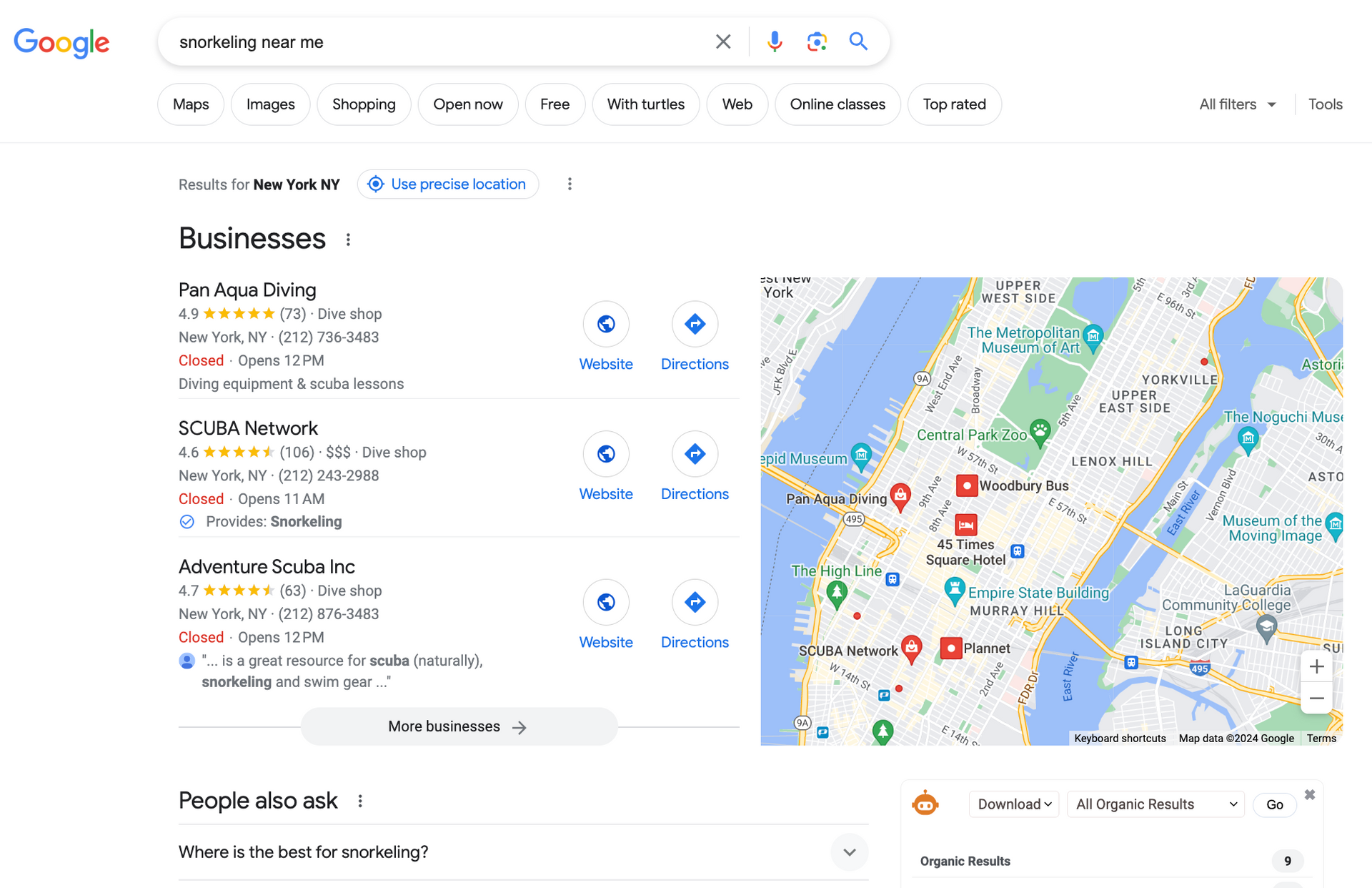
What is Local SEO?
Local SEO (Search Engine Optimization) is a specialized branch of SEO focused on optimizing a website to be found in local search results. Local SEO for tour operators helps companies promote tours to local customers when they are searching for them online.
Think about this: when people are searching for tours, some are searching on a national level (they might be on the other side of the country or even the world!), while others might be in your local area. Focusing on local SEO, along with national SEO, helps ensure that you are maximizing all your opportunities.
Local SEO vs National
Local SEO and national SEO serve different purposes but are both crucial for a comprehensive digital marketing strategy. Local SEO targets potential customers within a specific geographic area, ensuring your business appears in local search results and map listings.
This is especially important for tour operators who want to attract travelers already in the vicinity or planning to visit soon. National SEO, on the other hand, aims to reach a broader audience across the entire country or even internationally. By balancing both local and national SEO, you can maximize your visibility and attract a diverse range of customers.
Why is Local SEO Important for Tour Operators?
For tour operators, local SEO is particularly crucial because it connects them with potential customers who are searching for tour services within a specific geographic area. When people are planning trips, they often look for local tour companies to help them explore new destinations.
By optimizing for local search, tour operators can ensure they are visible to these potential customers, thereby increasing the chances of attracting bookings. Effective local SEO can drive more traffic to your website, increase phone calls and inquiries, and ultimately boost sales and revenue.
9 Quick Tips Tour Operators Should Start Doing
- Optimize Your Google Business Profile
- Encourage Customer Reviews
- Have Consistent NAP (Name, Address, Phone) Across the Internet
- Local Keyword Optimization
- Create Location-Specific Landing Pages
- Optimize Website for Mobile
- Build Out Local Citations
- Utilize Schema Markup
- Generate Local Backlinks
Optimize Your Google Business Profile
Your Google Business Profile is often the first impression potential customers have of your business. Ensure that all information, including your business name, address, phone number, hours of operation, and services offered, is accurate and up-to-date.
Add high-quality images and videos to showcase your tours and make your profile visually appealing. A well-optimized Google Business Profile not only improves your visibility in local searches but also builds trust with potential customers.
Encourage Customer Reviews
Customer reviews are a powerful tool for building credibility and attracting new customers. Encourage satisfied customers to leave positive reviews on your Google Business Profile, TripAdvisor, and other relevant platforms.
Respond to all reviews, whether positive or negative, to show that you value customer feedback and are committed to improving your services. Highlight positive reviews on your website and social media to further boost your reputation.
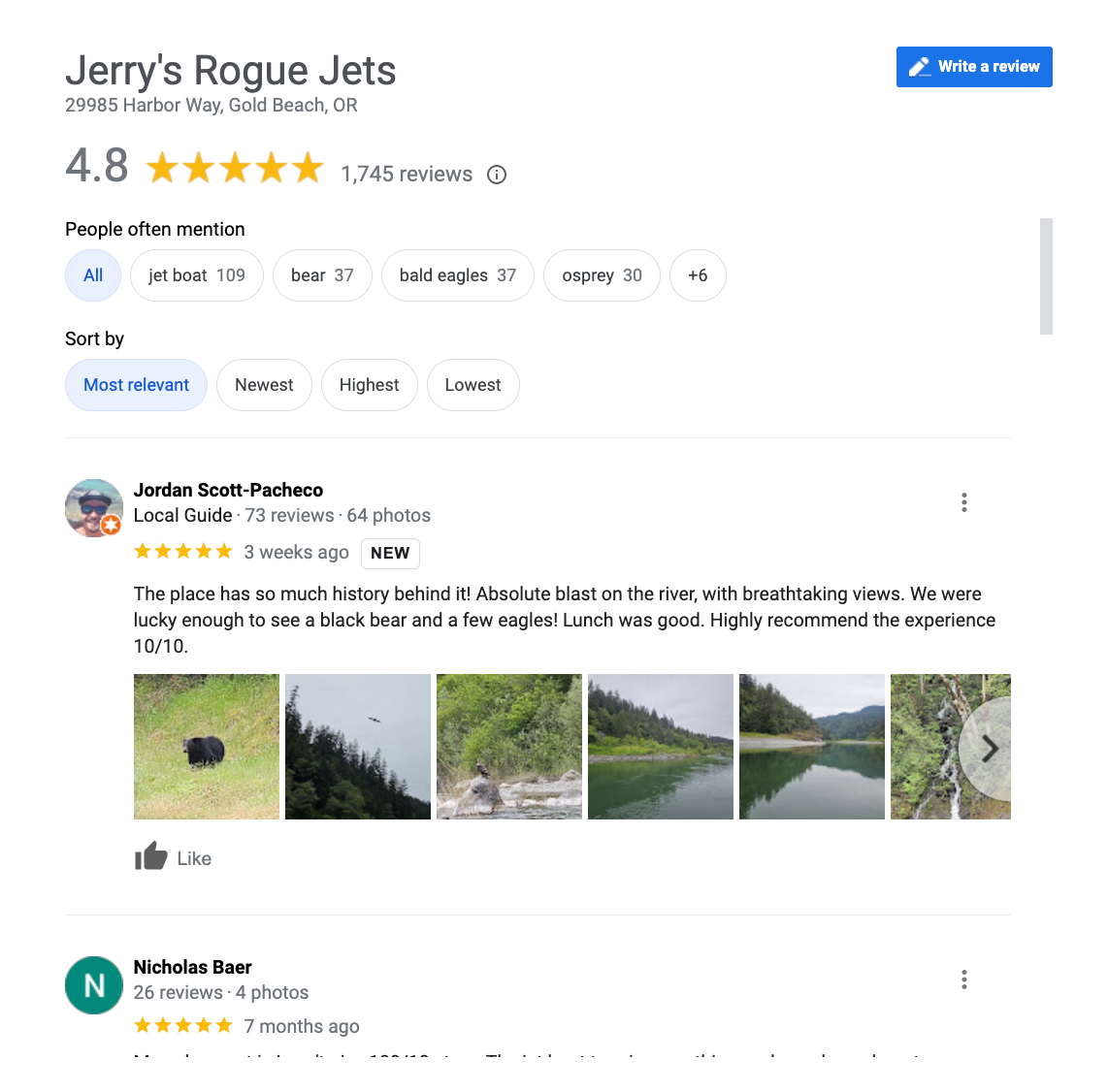
Have Consistent NAP (Name, Address, Phone) Across the Internet
Consistency is key when it comes to your business’s NAP information. Ensure that your business name, address, and phone number are the same across all online platforms, including your website, social media profiles, and online directories.
Inconsistent information can confuse search engines and potential customers, negatively impacting your local search rankings. Use tools like
Moz Local to help manage and monitor your listings.
Local Keyword Optimization
Identify the keywords that potential customers use when searching for local tours and incorporate them naturally into your website content. Use tools like Google Keyword Planner to find relevant local keywords.
Focus on long-tail keywords that include your city or region to attract more targeted traffic. Optimizing your content with local keywords improves your chances of appearing in local search results and attracting more customers.
Create Location-Specific Landing Pages
Develop landing pages for each location you serve to provide targeted information to potential customers. Include local keywords, detailed descriptions of the tours offered, customer testimonials, and high-quality images. These pages should be designed to engage visitors and encourage them to book a tour. Location-specific landing pages not only improve your local SEO but also enhance the user experience.
Optimize Website for Mobile
A significant number of users search for local services on their mobile devices, making it essential to have a mobile-friendly website. Use a responsive design that adjusts to different screen sizes and ensures that your site loads quickly.
Test your site’s mobile usability with tools like
Page Speed Insights. A mobile-optimized website improves the user experience and can boost your search rankings.
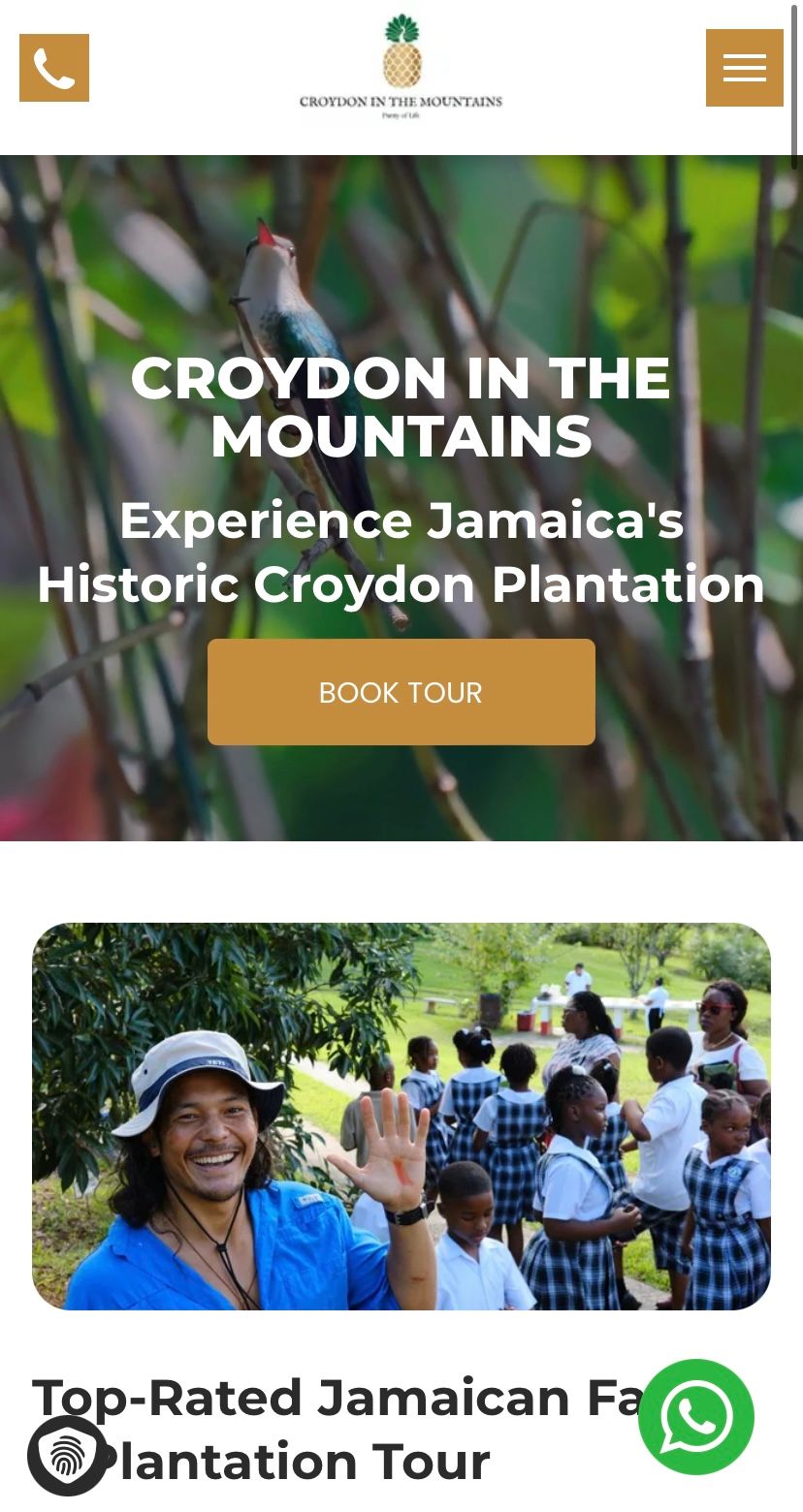
Build Out Local Citations
Local citations are mentions of your business on other websites and can significantly impact your local SEO. Get your business listed in local online directories, tourism websites, and industry-specific platforms. Ensure that your NAP information is consistent across all citations. Focus on high-quality, reputable directories that are relevant to your industry to enhance your local search visibility.
Utilize Schema Markup
Schema markup is a type of microdata that helps search engines understand your website content better. Adding local business schema markup to your website can improve your chances of appearing in rich search results, such as the local pack. Include details like your business name, address, phone number, and business hours. Use Google’s Structured Data Markup Helper to assist with implementation.
Generate Local Backlinks
Backlinks from reputable local websites can boost your local search rankings and drive traffic to your site. Reach out to local bloggers, news sites, and tourism-related websites to build backlinks. Offer to write guest posts or collaborate on local content. Participating in local events and sponsoring community activities can also help you gain exposure and generate valuable backlinks.
Tools to Help with Local SEO
Several tools can help streamline and enhance your local SEO efforts, ensuring your tourism company maintains a strong online presence. Google Business Profile (formally Google My Business) is essential for managing your Google Business Profile, allowing you to respond to reviews and track analytics.
Moz Local (mentioned before) helps maintain consistent business information across the web, which is crucial for local search rankings.
BrightLocal offers a comprehensive suite of tools to track local search rankings, manage reviews, and audit citations, making it easier to monitor your local SEO performance.
Yext provides robust solutions for managing listings and improving local search visibility, ensuring your business details are accurate across various platforms.
Finally,
SEMrush is invaluable for conducting keyword research, tracking rankings, and analyzing competition, giving you the insights needed to stay ahead in the local SEO game.
Using these tools effectively can significantly boost your local search visibility and attract more customers to your business.
If you’d like to check out even more
SEO tools for tour operators, both free and paid, check out this blog article we wrote.
Next Steps to Improve your Local SEO
Improving your local SEO is an ongoing process that requires regular monitoring and adjustments. Begin by reviewing your local SEO performance and making necessary changes based on analytics data, such as tracking traffic, rankings, and conversions. Stay updated with the latest trends and updates in local SEO by subscribing to industry blogs and attending webinars.
Engage with your local community by building relationships with local businesses and organizations, participating in community events, and interacting with local customers on social media. Continuously create fresh, valuable content that resonates with your local audience, such as blogs about local events, attractions, and travel tips.
If you'd like to work with experts who specialize in the travel and tourism industry, feel free to book your free
discovery call now.

